|
I'll be visiting Australia from mid-March to mid-April and will be presenting on two of my recent projects, In Conversation with... and Sustaining Time. Please do come along if you are in Melbourne, Sydney or Wollongong. Multispecies Methods: Participatory Research and the more-than-human Widespread interest in challenging the traditional divides between humans and non-humans has contributed to a growing push for methods that can work with the distributed knowledges, experiences and values of our multi-species worlds. In response, proposals for the development of etho-ethnology and ethno-ethology (Lestel et al. 2006), multi-species ethnography (Kirksey and Helmreich 2010) and zoömusicology (Taylor 2013), amongst others, have augmented, hybridised and remade methodological repertoires. Participatory research methods have a long history of grappling with problems around who is understood ‘to know’ within the research process. These methods challenge what kinds of knowledges are seen to be legitimate, while also attending to the problems of producing knowledge within contexts of stubborn inequality. As a result, an engagement with the various debates that have taken place within participatory research offer a rich opportunity for those working with non-human others to reflect on their methodologies in complex and sophisticated ways. This paper analyses the outcomes from a recent research project that explored the potential for developing more-than-human participatory approaches. Over the course of four workshops, the team drew on participatory design, participatory action research and ethical frameworks for community-based participatory research to frame their encounters with dogs, bees, trees and water. Discussing some of the affordances and frictions that we experienced in this process, I will draw out some of the consequences of trying to think the ‘more-than-human’ and ‘participatory research’ together. Throughout I pay particular attention to the ways our preconceptions around ‘who knows’ were tested, expanded and confounded by our immersive experiences in more-than-human worlds.
Transforming economies, transforming time? Economic crisis, austerity politics, energy supply uncertainty, climate change – these are just a few of the issues igniting interest in alternatives to the neoliberal capitalist model. Focusing on the potential of collaborative relationships, rather than ones based on competition, proponents of more sustainable economies are exploring gift economies, peer-to-peer, shared consumption, crowd-funding and co-operative models. Broadly speaking, it has often been assumed that shifts in the dominant economic model have brought with them shifts in dominant understandings and experiences of time. Industrial capitalism is often linked with new uses of clock time, for example, while late capitalism is been associated with a speeded up, 24/7, networked time. Such narratives provoke the question of what kind of time(s) might a sustainable economy be characterised by? Drawing on case study material, interviews and archive research, this paper looks at three of the most easily recognisable candidates (slow rather than fast, circular rather than linear and balanced rather than overworked). In each case, narratives of epochal shifts are challenged and a more complicated, impure account of the politics of sustaining time is developed. WOLLONGONG
Wednesday 1st April 2015 12:30PM - 1:30PM Building 41 Room B41.157 University of Wollongong More Info
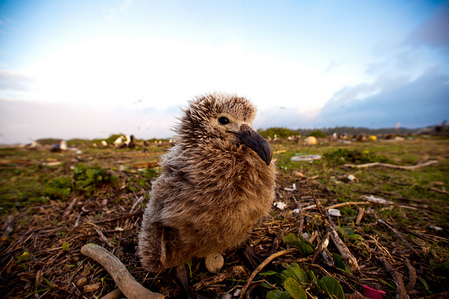 "Journey to Midway Island" by kris krüg "Journey to Midway Island" by kris krüg An event organised by myself and Thom van Dooren from the University of New South Wales. To be held at the Environmental Humanities Laboratory Division of History of Science, Technology and Environment Royal Institute of Technology, Stockholm 2-4 December 2014 While the fear of capricious immortals living high atop Mount Olympus may have waned, the current age of the Anthropocene appears to have brought with it insistent demands for us mere mortals to engage with unpredictable and dangerous beings that wield power over life itself. Plastics, radioactive waste, fossil fuels and species extinctions have interpellated us into unfathomably vast futures and deep pasts, with their effects promising to circulate through air, water, rock and flesh for untold millions of years. Human time, geological time and a host of other temporal frames and possibilities confront each other in new ways, with little understanding on our part of how to find calibrations that might allow a reconciliation between them (Hatley; Chakrabarty; Bastian; Metcalf and van Dooren). One consequence is that relationships between life and death, creation and decay have become uncanny; no longer entailing what was once taken for granted. The unravelling of inter-generational and inter-species relationships in the current mass extinction event shifts death from being a partner to life toward the ‘double death’ that amplifies mortality until it overruns life altogether (Rose). While at the same time, the finitude of acts of creation, evoked so clearly in Shelley’s Ozymandias, is no longer as certain as it might once have been. Instead, in specific, but crucial contexts, it is not the dissipation and silencing of our creative and technical works that is feared, but the threat that they might circulate endlessly (Masco; Morton). The aim of this symposium, then, is to explore the shifting relationships between time, mortality and finitude in the context of the Anthropocene. Find out more and submit an abstract. A new post about the More-than-human Participatory Research project is now up on the AHRC Connected Communities blog: Having to put on a protective suit to meet up with potential new research partners doesn’t seem to bode at all well, but it was what myself and a team of other researchers found ourselves doing in May last year, as part of a Connected Communities project that focused on co-designed research. This particular workshop explored the possibility of doing participatory action research with bees, but over the course of the year we pretended to be dogs and underwent clicker training, we went wild swimming and also talked to trees. Our aim was to test out a variety of co-design methods to see what happened when you tried to extend them to include non- humans. The film from our final workshop of the more-than-human participatory research project is now available. Our water workshop took place on the 1-2 of October at/on/in the River Torridge. We worked with artist Antony Lyons and members from the North Devon Biosphere Reserve and the Devon Wildlife Trust to explore whether the recent Connected Communities-funded Ethical Guidelines for Community-Based Participatory Research might be extended to working with non-humans, specifically water. Thanks to our film-maker Marietta Galazka. Video from the third workshop from the AHRC funded In Conversation with...: Codesign with more-than-human communities, which took place on the 11th -12th of September at The Forest of Dean. We worked with the Wye Valley AONB and Wildwood Coppice Crafts to think through how a performative and experiential research approach might be extended to working with trees. 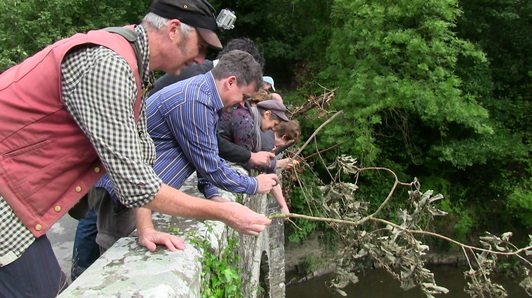 Participants at the water workshop exploring ideas of 'flow' aka playing pooh sticks Participants at the water workshop exploring ideas of 'flow' aka playing pooh sticks Write ups are now available for the most recent two events on participatory research with non-humans. Go here to read about performative approaches to working with trees and here for ethical community-participatory research with water. Video from the second workshop from the AHRC funded In Conversation with...: Codesign with more-than-human communities, which took place on the 31st May - 1st of June at Pershore College. We worked with the Evesham Beekeepers Association and Vale Heritage Landscape Trust to think through how the participatory action research approach might be extended to working with non-humans. 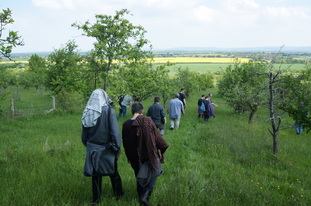 I've finished the write up for our second workshop in the In Conversation with...:Co-design with more than human communities project. See here for our approach to trying out Participatory Action Research with bees. Originally published on the More-than-Human Participatory Research blog, an AHRC funded project exploring the possibility of extending participatory research techniques to non-humans. 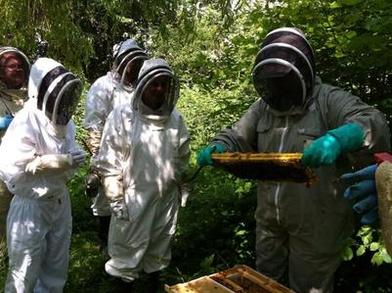 Part of being attentive to the possibilities of more-than-human participation in research is watching out for the ways that the traditional division between human agents and non-human subjects gets complicated in real life practices. I had been keeping this in mind throughout our In Conversation with Bees workshop, since we had quite a few discussions about different methods of beekeeping (e.g. frame versus natural) and how this might be interfering with bees preferred behaviours. But scattered throughout the two days were also a wide range of examples of how bees also shape the behaviour of the humans who keep them. Interacting with bees makes humans:
1. Calm down. It didn’t seem this way at first. When us amateurs where putting on our protective suits for the first time there was definitely some nerves. But we had been told about the importance of keeping calm and relaxed while inspecting hives and so we tried out best. Interestingly, in informal conversations many of the beekeepers also talked about how they looked forward to doing their inspections because of how calm the whole process made them feel. So while we did have examples of humans trying to control their own moods, there was also a more relational understanding where the activity of the bees also encouraged particular responses in the humans 2. Become more attentive to whole ecosystems. One beekeeper discussed the way that since they had started, they noticed they were much more aware of the wider environment, including what trees and plants were being grown, whether they were flowering early or late, and cycles in the weather. Another also mentioned how important it is to be aware of the yearly rhythms of potential predators. So forging connections with bees seemed to have a knock on effect of building connections with a much wider variety of living creatures and plants. 3. Develop multiplying practices. One of the first comments at our workshop was the saying that if you put 10 bee-keepers in a room you’ll get 15 different ways of doing things. I thought it was really interesting that bees, which are often used as symbols of regimented order, actually inspire a proliferation of practices and knowledges in the humans that keep them. 4. More intelligent. In a Victorian-era book about encouraging bee-keeping amongst the poor, the author claimed that even while bee-keeping might not always be a success it should be encouraged because it makes people more intelligent. 5. Continuous learners. Paternalism aside, there were many comments about the way the practice of bee-keeping meant that you were always learning more and so always needed to be open to the ways that bees don’t fit with strict models. 6. Drink less alcohol Bees don’t like the smell apparently, so bee-keepers need to moderate their intake, particularly the night before they do an inspection. I wondered how this might affect people’s social lives. Would one have to beg off from a night at the pub because the bees needed looking after in the morning? |
Archives
November 2022
Categories
All
|
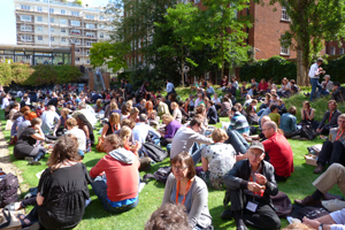
 RSS Feed
RSS Feed
